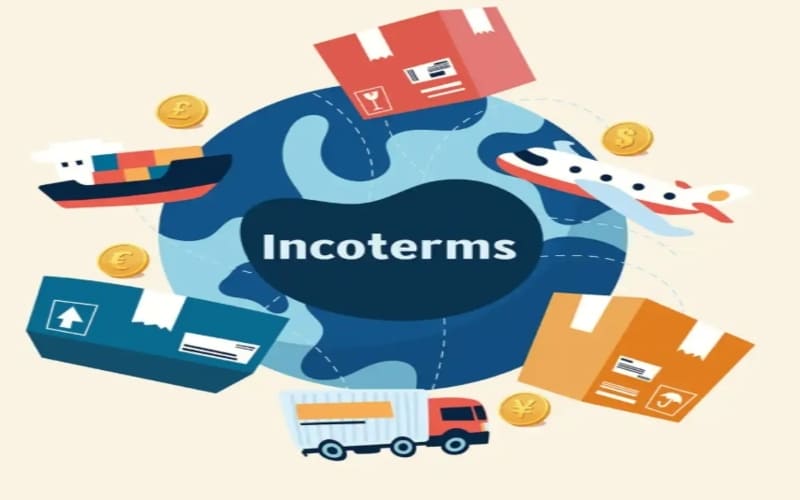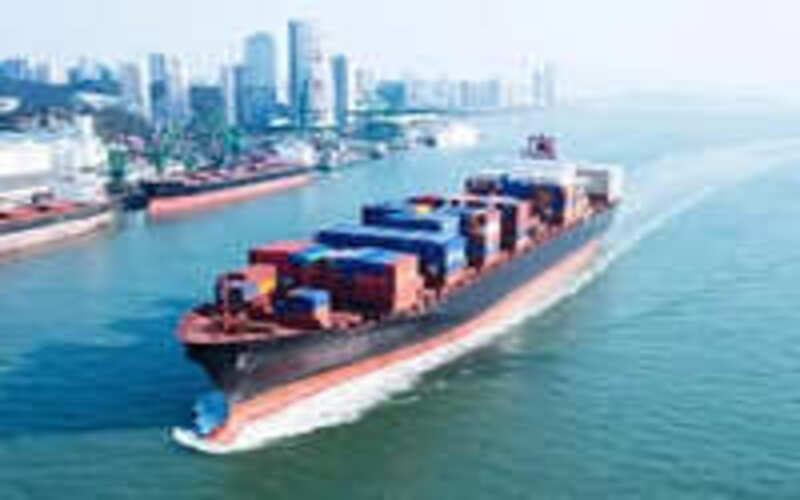Incoterms, or International Commercial Terms, play a vital role in international trade by defining the responsibilities of buyers and sellers during the transportation of goods. They specify when the responsibility for the goods transitions from the seller to the buyer, covering costs, risks, and liabilities associated with the shipment. This article delves into the various Incoterms, offering detailed insights to help businesses navigate the complexities of international shipping.
What Are Incoterms?
Incoterms are standardized trade terms used globally to outline the logistics responsibilities in international sales contracts. They determine who is responsible for paying for shipping, insurance, and customs clearance, as well as when these responsibilities shift during the shipment journey. Incoterms are updated regularly by the International Chamber of Commerce (ICC) to reflect modern trade practices and address emerging global logistics challenges.
In the case of Incoterms 2025, the goal is to further simplify the international shipping process by providing more clarity and flexibility in the allocation of responsibilities between buyers and sellers.
Overview of the 11 Incoterms
Understanding which Incoterm best suits your shipment is crucial for calculating shipping costs and minimizing potential risks. Below is a summary table of the 11 Incoterms, their definitions, and key responsibilities:
Table: Summary of 11 Incoterms 2025
| Incoterm | Meaning | Seller’s Responsibility | Buyer’s Responsibility |
|---|---|---|---|
| EXW | Ex Works | Make goods available at seller’s premises or another named place. | Responsible for all costs and risks from seller’s location onward. |
| FCA | Free Carrier | Deliver goods to a carrier at a named place. | Assume responsibility once goods are delivered to the carrier. |
| CPT | Carriage Paid To | Pay for transport to the named destination. | Assume risk after goods are handed over to the carrier. |
| CIP | Carriage and Insurance Paid To | Pay for transport and insurance to the named destination. | Assume risk once goods are handed over to the carrier. |
| DAP | Delivered at Place | Deliver goods to a named place, ready for unloading. | Assume risk upon delivery and responsibility for import duties. |
| DPU | Delivered at Place Unloaded | Deliver goods to a named place and unload them. | Assume risk once goods are unloaded at the destination. |
| DDP | Delivered Duty Paid | Pay all costs, including import duties, until delivery at buyer’s premises. | Assume responsibility after goods are delivered. |
| FAS | Free Alongside Ship | Deliver goods alongside the ship at the port of departure. | Assume risk once goods are alongside the ship. |
| FOB | Free On Board | Deliver goods on board the ship at the port of shipment. | Assume responsibility for goods once aboard the vessel. |
| CFR | Cost and Freight | Pay for shipping to the destination port, including loading. | Assume risk once goods are on board the vessel. |
| CIF | Cost, Insurance, and Freight | Pay for shipping, insurance, and freight to the destination port. | Assume risk once goods are on board the vessel. |
Choosing the Right Incoterm for Your Shipment
Selecting the most suitable Incoterm is critical for managing costs, ensuring the security of the shipment, and establishing clear roles for both buyer and seller. Each Incoterm offers a different balance of responsibility and cost allocation. Understanding how each term functions will help in making informed decisions.
Factors to Consider When Choosing Incoterms
- Nature of the Goods: For high-value or fragile goods, it may be more beneficial for the seller to take on more responsibility, such as with CIP or CIF, where the seller arranges both transport and insurance.
- Mode of Transport: Some Incoterms are only applicable to certain modes of transportation. For example, FAS, FOB, CFR, and CIF are exclusively used for sea or inland waterway transport, while others like FCA and EXW can be used across all modes, including air and road.
- Cost Allocation: Some Incoterms like EXW and FCA place more financial burden on the buyer, while DDP, for instance, places almost all responsibility on the seller. Understanding how much responsibility each party is willing to take on can help define the most efficient terms.
- Risk Management: Incoterms also define the point at which risk transfers from seller to buyer. Terms such as FOB and CFR transfer risk when goods are on board the vessel, while DDP ensures that the seller takes on the risk until goods are delivered to the buyer’s location.
The Impact of Incoterms on Freight Costs
How Incoterms Affect Freight Expenses
Incoterms directly influence the cost of shipping goods. They outline who is responsible for paying for freight, insurance, and customs duties. Depending on the agreed-upon term, one party may bear the full cost of transportation, while the other party may only be responsible for a portion.
For example:
- EXW (Ex Works): The buyer pays for all costs from the seller’s premises onward, including transportation, duties, and unloading costs at the destination port.
- CIF (Cost, Insurance, and Freight): The seller pays for the cost of the goods, transportation, and insurance until the goods reach the destination port, but the buyer assumes risk once the goods are on board.
Using tools like a freight rate calculator can help determine how different Incoterms will impact your overall shipping cost. These tools take into account weight, dimensions, and destination, offering instant estimates for various terms.
The Evolution of Incoterms: 2010 to 2020
Key Changes in the 2020 Incoterms
The latest version of Incoterms, updated in 2020, includes some important changes from the previous 2010 version. The introduction of the DPU (Delivered at Place Unloaded) term, replacing DAT (Delivered at Terminal), provides more flexibility regarding delivery locations, allowing shipments to be delivered to a specific place, not just a terminal.
Another significant update is the clarification of insurance responsibilities in the CIP and CIF terms. The 2020 Incoterms specify that the seller must secure insurance with a minimum coverage for goods in transit, ensuring greater protection for buyers.
Incoterms in Air Freight: A Comprehensive Guide for 2025
Incoterms play a crucial role in international air freight transactions, ensuring clear definitions of responsibility between buyers and sellers. Understanding these terms is essential for both importers and exporters to avoid confusion and additional costs. This article explores the key Incoterms used for air freight, their importance in 2025, and considerations for selecting the appropriate Incoterm for your shipment.
Key Incoterms for Air Freight
Incoterms, or International Commercial Terms, are globally recognized terms that define the obligations of both buyers and sellers in international trade. Below is a detailed table listing the most commonly used Incoterms in air freight transactions:
| Incoterm | Responsibility of Seller | Responsibility of Buyer | Transport Mode |
|---|---|---|---|
| EXW (Ex-Works) | Goods made available at the seller’s premises. | Buyer takes full responsibility for all transport, risks, and costs from the seller’s warehouse. | Any |
| CIP (Carriage and Insurance Paid) | Seller pays for transport and insurance to the agreed destination. | Buyer takes responsibility upon delivery at the destination. | Any |
| CPT (Carriage Paid To) | Seller is responsible for transportation costs to a specified destination. | Buyer assumes responsibility upon arrival at the destination. | Any |
| DDP (Delivered Duty Paid) | Seller is responsible for all costs, including transport, insurance, and customs duties. | Buyer assumes no responsibility until delivery at the destination. | Any |
| DAP (Delivered At Place) | Seller covers main carriage costs but not customs clearance. | Buyer is responsible for customs clearance and final delivery. | Any |
The Role of Incoterms in 2025
In 2025, the selection of an appropriate Incoterm is more crucial than ever. Global trade complexities, combined with evolving customs regulations and logistics processes, require careful consideration. The right Incoterm ensures that all parties involved understand their obligations, reducing the risk of disputes or unexpected costs.
Streamlined Transactions and Protection for All Parties
By agreeing on an Incoterm, both the seller and buyer align on the transportation process, which can involve multiple stakeholders. This alignment is essential in global supply chains, ensuring timely payment and minimizing risks for suppliers, carriers, and buyers alike. For example, DDP (Delivered Duty Paid) offers the highest level of protection for the buyer, ensuring that they only receive the goods without worrying about additional logistics complexities.
Choosing the Right Incoterm: A Strategic Decision
The choice of Incoterm should be aligned with the specific needs of the transaction and the capacity of the involved parties. For example, smaller businesses or those unfamiliar with international shipping may prefer the safety and predictability of DDP. In contrast, experienced importers might choose EXW or FOB (Free on Board) to maintain control over the shipping process.
| Incoterm | Best Use Case | Buyer Responsibility | Seller Responsibility |
|---|---|---|---|
| EXW | Small businesses, or buyers familiar with shipping | Full responsibility for transport, risks, and customs | Only prepare goods for pickup |
| FOB | Importers with a preferred forwarder and control over shipping | Cost and risk transfer at port of shipment | Responsible for transport to the port of shipment |
| CPT | When control over the transport process is necessary but not the full cost | Responsibility at destination | Pays transport costs to the destination |
Specific Considerations for Different Countries
Incoterms are universally recognized, but the implementation can vary depending on the country’s specific logistics requirements. For instance, customs procedures differ in regions like the EU, the US, or India, and these differences can influence which Incoterm is most appropriate. Understanding local regulations, including necessary documentation and taxes, will help determine the best Incoterm for a particular trade agreement.
What Incoterms Do Not Cover
It’s important to note that Incoterms do not address issues like property rights or force majeure situations. Furthermore, unless specified under C terms (CPT, CIP, etc.), Incoterms do not require the seller or buyer to arrange insurance. Cargo insurance remains a separate responsibility, typically arranged by the buyer to protect against risks during transport.
Defining Locations and Terms Clearly
When drafting the sales contract, it is critical to clearly define the location and Incoterm in the contract. For example, when using FCA (Free Carrier), the location should be precise, such as “FCA Shenzhen Yantian CFS.” Clear definitions ensure there is no ambiguity regarding responsibilities for both parties, particularly in larger cities with multiple terminals.
Letters of Credit and Incoterm Selection
For international sales transactions backed by letters of credit, the choice of Incoterm can be limited. Letters of credit generally favor C terms (e.g., CPT, CIP), as they require the seller to provide specific documentation, such as an air waybill. Incoterms like EXW or DDP may not be viable in such cases due to the lack of control over shipping and customs documentation.
Conclusion
Incoterms are vital for smooth international air freight operations. In 2025, businesses need to evaluate the most suitable terms based on their shipment needs and country-specific requirements. By selecting the right Incoterm, parties ensure that all responsibilities are clearly defined, risks are minimized, and both sellers and buyers can confidently proceed with their transactions.



